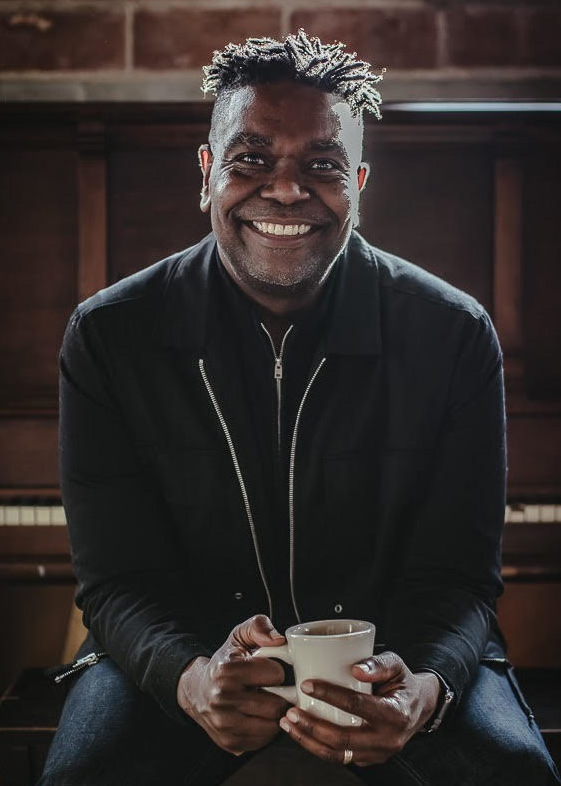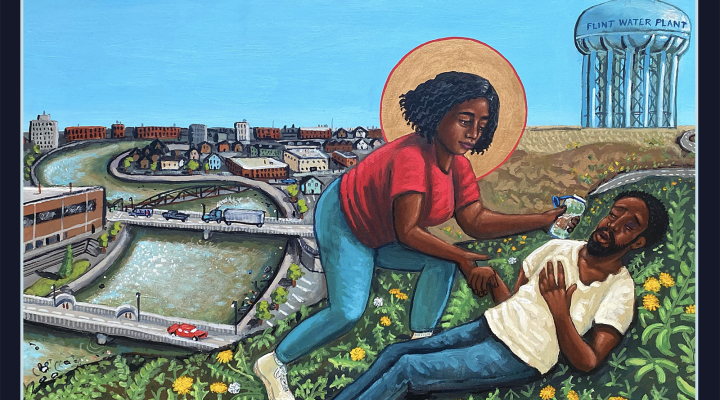The church’s failure to care for all people with the compassion Christ commanded fuels white supremacy and racial injustice, Sean Palmer said during a Baylor University conference on racism and faith.
“It’s the failure to love neighbor that has always led to racism and genocide and sexism and slavery and all the chronic ailments which have savaged the pages of human history,” said Palmer, teaching pastor at Ecclesia Houston and one of two speakers to open “Time to Wake Up: Racism in the White Church,” a Feb. 16-18 online and in-person gathering at Baylor’s Truett Theological Seminary.

Sean Palmer
Citing the works of G.K. Chesterton and Charles K.A. Smith, Palmer said human beings often fall into the habit of caring only for those closest to them, or those who help maintain the status quo. Sadly, churches throughout U.S. and world history likewise often neglected to widen their circles of concern.
“The way we treat our neighbors is the way we construct the joys and traumas of life,” Palmer said. “The very nature of human existence, at least here in America, is whether or not Christians will truly love their neighbors.”
Palmer’s presentation followed the Christ-centered examination of church and racial injustice the conference is all about, said Baylor English professor and event organizer Greg Garrett.
“We’re going to look at racism through the lens of Jesus,” he said about the lineup of speakers that includes Esau McCaulley, Beth Moore and Jemar Tisby. “Through conversations, presentations, preaching and prayer in this space, we’re going to learn together and build relationships together.”
But that is a tall order in culture where loving relationships are frequently limited to family and those perceived to be political and racial allies, Palmer said.
It was that selectivity that enabled a gunman to kill nine people at a Bible study at Emanuel AME Church in 2015 and police to murder George Floyd in 2020, he suggested. “The world we live in suffers, and has always suffered, the violence of arbitrary loves — the picking and choosing of who gets to be loved.”
But there are consequences for American Christianity, as well, he said. “The American church is in the place that it is in — and it is in the place that it has always been — because we have deliberately chosen disordered loves.”
Palmer used multiple video clips from the 1962 film To Kill a Mockingbird, based on the novel of the same title by Harper Lee, to illustrate the concept that fairness is indiscriminate.
“In the end, Harper Lee is asking her readers whether American justice is based on anything more than the arbitrary blowing breeze of our shifting affections,” he commented.
But to the extent that such preferences are formed by family and culture, they can sometimes be reshaped and widened. Otherwise, Palmer asked, why would Jesus direct his followers to love neighbor as self?
“If Jesus thinks he can teach us to love our neighbors, he must think we have some agency over our affections.”
“If Jesus thinks he can teach us to love our neighbors, he must think we have some agency over our affections. We are more than a bag of impulses,” Palmer said. “The world we inhabit today, and the world we will inhabit tomorrow, is about how and who we choose to love.”
Yet there is inevitably a resistance to any effort to confront racism within the white church, Garrett added. “I often hear there is no ‘white church,’ there is only one church. On the day that is true, I will be happy to stop talking about this.”
Garrett said he’s often asked why racism within Black and Asian churches is not discussed at the conference. “I would say … as soon as the Black church has the power to impose its will on the rest of the people in America, then we can have that conversation. I get up in the morning and I walk around white all day, and racism in any other church does not affect me at all.”
A more recent jab is to dismiss the conference as a product of “woke Baylor.” Garrett said the university did not integrate until 1964 and that a Vietnam War protest held on campus was for the war, not against it.
“I have been here for 34 years, and I have never thought of Baylor as necessarily being on the absolute cusp of the culture wars,” he said.
Related articles:
Greg Garrett, Baylor prof and BNG columnist, awarded Baugh grant for research on race and media


